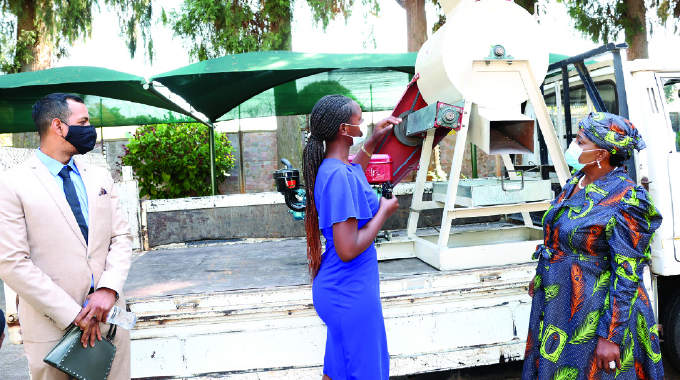EDITORIAL COMMENT: Team sport letting the nation down

WHEN the senior women’s national football team — the Mighty Warriors —qualified to play at the 2016 Olympic Games in Rio de Janeiro, Brazil, there were high hopes that their historic feat was going to open “the floodgates’’ for more team sport codes from this country to follow suit and qualify for the world’s biggest sporting showcase.
In fact, when the Mighty Warriors punched their ticket to the Rio Games they wrote their own piece of history as they became the second team sport, after the women’s field hockey’s “Golden Girls’’, to represent Zimbabwe at the Olympic Games since the attainment of Independence in April 1980.
The Zimbabwe women’s team in field hockey was the first to win a gold medal for the country at the 1980 Moscow Olympics after they got a special invitation from the International Olympic Committee to play at the boycotted Summer Games in the then Soviet Union (now Russia).
And after that historic feat by “the Golden Girls’’, Zimbabwe had to wait for 36 years to have another team sport code to qualify for the Olympic Games when the women’s senior national football team — the Mighty Warriors — did themselves and the nation proud by qualifying for the Rio Games in Brazil in 2016.
This is a sad scenario given that Zimbabwe has a number of team sport codes, such as basketball, men’s and women’s field hockey, volleyball, handball, football (men’s Under-23) and rugby sevens, that could have made their way to the Olympic Games way before the Mighty Warriors’ qualification for the Rio Games.
But what’s the problem and why did these team sport codes failed to qualify for the Summer Olympic Games?
Crispen Mhike, the Headmaster of Heritage Senior School, recently made an interesting observation about the perennial failure by our team sport codes to qualify for the Olympic Games.
He posed a number of serious questions, asking why should we send teams to compete on the World stage before we compete locally? Is there a proper field hockey league in Zimbabwe?
Mhike said we send athletes to the Olympics before they compete locally in Zimbabwe’s open competition. For example, he said, who is Zimbabwe’s current 100m champion? Who is Zimbabwe’s male butterfly 100m champion? Who is Zimbabwe’s tennis champion?
We concur with Mhike.
The majority of our team sport codes have failed to come up with a viable or a proper league system where clubs or teams play their matches on a weekly basis at regional, provincial or national level.
Disciplines such as basketball, volleyball and handball are mainly played at a social level where undercooked players meet every other weekend to play in their so-called league matches.
Handball, for example, has over the past years failed to come up with proper structures for a viable league system which encompasses junior and senior teams at national level.
In fact, the Zimbabwe Handball Federation have only been grouping their junior players for some sort of periodical training camps, mainly in Harare, in the pretext of preparing them for some international tournaments.
But what boggles the mind is where are these players drawn from as we understand that there no proper handball clubs to talk about in Zimbabwe and if they are any, do they play in any league, be it in Harare, Mashonaland East, West and Central, Midlands, Matabeleland North and South; and Manicaland?
The same for basketball and volleyball.
For now, let’s not talk about football. The country’s prospects of qualifying the national Under-23 men’s football team for the Olympic Games are next to none as there are no junior football structures to talk about in Zimbabwe at the moment.
In his recent article in The Herald, Mhike said it was high time that we take sport to the masses if Zimbabwe are to become a force to reckon with in sport in the southern African region and in Africa.
“This is what I think we should do with our sport if we are to improve,’’ Mhike said.
“National Sport Associations need to take sports to the masses in Mbare, Rimuka, Pfupajena, Magwegwe, Sakubva, etc. We saw positive growth and competitiveness when Albert Nhamoyebonde took tennis to Mufakose, when Steve Mangongo took cricket to Highfield, when Victor Pekani took rugby to Mbare and when ‘Doc’ took hockey to Triangle.
“Many will say sports development needs money but the people I have mentioned above were not rich. They just had a passion and vision. Are we in leadership positions because we have a passion and vision or we just want the prestige and perks of being at the top?
“I advocate for a scenario in which we send teams who have competed locally to the world stage. (Female middle-distance runner) Vimbai Maisvorewa should come and run the 400m race here in Zimbabwe before she can be considered for the Olympics although she is based in the United States where she has access to better facilities and all.
“Our hockey, rugby, handball etc. should have competitive teams locally before we compete internationally.
“Lastly, without proper High Performance Centres, we are going nowhere. Let’s establish High Performance Centres in all our provinces. Our schools sport systems and clubs cannot look after the needs of elite sportsmen/ women,’’ Mhike said.
And he can’t be far from the truth. Planning, preparation and execution of the process are key fundamentals if we are to succeed on the world stage.
Our National Sport Associations need to have a serious self-introspection and come up with proper professional structures which will enable our athletes to take sport seriously if we are to make a big impact at major international events such as the Olympic Games and African Games.
Sadly, most of these National Sport Associations do not have full-time administrators and offices; and are run on a voluntary basis (from homes), mostly by unqualified personnel and this is another area which needs to be addressed urgently in this country.











Comments